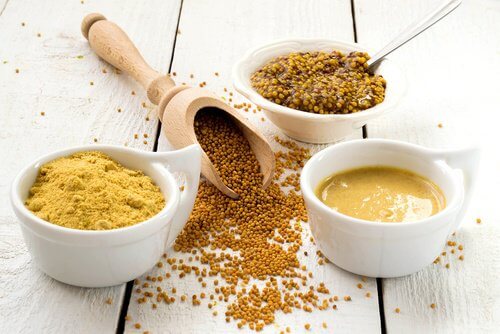9 Tips to Boost a Slow Metabolism


Reviewed and approved by Doctor Carlos Fabián Avila
Your metabolism is the group of processes that the body uses to convert food into energy in order for it to function properly. If you have a slow metabolism, fewer nutrients are utilized and they’re transformed into fat that makes you gain weight and jeopardizes your health.
Given this risk, the best way to lose weight is to speed up a slow metabolism. A lot of discipline, effort, and motivation is required to get there, but it’s a fairly simple strategy.
Tips for changing a slow metabolism
1. Remember the basics: eat five meals a day

Your digestive system usually reserves some of the food you eat so you have additional energy if you don’t eat for a long period of time.
This evolutionary trait makes little sense in a society where food is guaranteed, so those food reservoirs are turned into fat.
If your body gets accustomed to five meals a day, however, it will learn that it doesn’t need to store anything, which will help change a slow metabolism.
In this case, it’s best to take breaks from your diet on occasions so your body won’t become too used to it. As with any other aspect of life, change keeps you active and attentive.
2. Follow the classics: exercise to speed up metabolism
Getting exercise means using energy that you wouldn’t otherwise use, contributing to the acceleration of your metabolic system.
As we mentioned in the previous tip, you should vary your training intensity so your energy exertion isn’t always the same. When you don’t do this, your metabolism will slow back down.
3. Don’t forget to drink water

Water fills your stomach but doesn’t contain anything that slows your digestion. This means it will speed up your metabolism.
In this sense, the more water you drink, the faster you will metabolize food. Always stay within the healthy limit: two to three liters a day.
Also read:
5 Surprising Benefits of Drinking Water
4. Try coconut oil
Besides being very tasty, this oil is more stimulating than olive oil. In fact, it may even help you burn three times more calories than other similar ingredients.
This happens because coconut oil triggers a state that’s known as ketosis, which uses fats as fuel instead of sugars.
There are plenty of recipes and ways to use it. For beginners, it’s a good idea to start with a teaspoon before a meal or use it as a substitute for olive oil.
5. Add spice to your meals with cinnamon

Oddly enough, this spice enables you to absorb sugars much faster. Research has shown that it’s good for people with metabolic syndrome and type 2 diabetes.
There are plenty of dishes that you can add cinnamon to, but we recommend using it as a natural sweetener in coffee or tea. You’ll eliminate the use of harmful products without sacrificing great flavor.
6. Have coffee with breakfast
Caffeine not only wakes you up, it also speeds up your heart rate. Activating the heart is important because it gives the rest of your body a boost, including your metabolism.
You may like:
How Much Coffee Should You Have Daily?
7. Include oily fish in your diet

The first benefit you’ll notice is that you feel full sooner, so you will eat less.
Moreover, your body will only use what it needs and discard the rest, because it’s easy to digest. Since it’s light, it will be a rapid process that helps modify the metabolism.
8. Eat spicy foods
Spicy foods increase your body temperature. Heat helps speed up a slow metabolism because it puts you on alert. Then you process nutrients more quickly and when combined with light ingredients, everything will accelerate.
9. Streamline your meals

Don’t give up on taste. Mix the foods you like with new ingredients to help you digest them faster and better.
In addition, it’s a good idea to eat your meals while seated at the table and avoid distractions; when you watch TV while you eat, you usually eat more.
You need to incorporate these habits into your regular life.
That is the key: you have to be consistent when you try to change your metabolism, including the need to make changes in both your diet and the intensity of your exercise.
Are you ready to try these amazing tips? Do you have any other ideas you think might surprise us?
All cited sources were thoroughly reviewed by our team to ensure their quality, reliability, currency, and validity. The bibliography of this article was considered reliable and of academic or scientific accuracy.
- Swift DL., McGee JE., Earnest CP., Carlisle E., et al., The effects of exercise and physical activity on weight loss and maintenance. Prog Cardiovasc Dis, 2018. 61 (2): 206-213.
- Eyres L., Eyres MF., Chisholm A., Brown RC., Coconut oil consumption and cardiovascular risk factors in humans. Nutr Rev, 2016. 74 (4): 267-80.
- Qin B., Panickar KS., Anderson RA., Cinnamon: potential role in the prevention of insulin resistance, metabolic syndrome and type 2 diabetes. J Diabetes Sci Technol, 2010. 4 (3): 685-693.
This text is provided for informational purposes only and does not replace consultation with a professional. If in doubt, consult your specialist.








